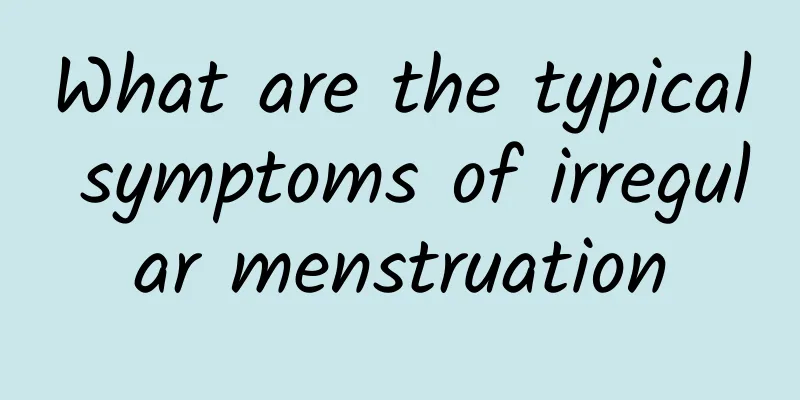What should you not eat after an abortion? What should you eat after an abortion to help your body recover?

|
What should you not eat after an abortion? What should you eat after an abortion to help your body recover? First paragraph: Abortion is a common surgical procedure and can be a big decision for women. After an abortion, a proper diet is very important for the body's recovery and rehabilitation. So, what should you not eat after an abortion? Next, we will explain this in detail and introduce some foods that are beneficial to the body's recovery. 1. Avoid spicy food After an abortion, a woman's endometrium may be stimulated and traumatized to a certain extent. At this time, you should avoid eating spicy foods such as chili peppers and peppercorns. These foods will stimulate the digestive system, increase the burden on the gastrointestinal tract, and may cause stomach pain, diarrhea and other discomfort symptoms. 2. Limit caffeine intake Drinks containing caffeine, such as coffee and tea, should be avoided as much as possible after an abortion. Caffeine can stimulate the central nervous system, increase the burden on the kidneys, and may cause insomnia, palpitations and other problems. In addition, excessive intake of caffeine may also affect the body's absorption and metabolism of some drugs, which is not conducive to the body's recovery. 3. Avoid high-fat foods After an abortion, you need to pay attention to a balanced and healthy diet. High-fat foods, such as fried foods and fatty meat, will increase the burden on the gastrointestinal tract and are not conducive to the body's recovery. In addition, excessive fat intake will also lead to weight gain and add additional pressure on the body. Therefore, after an abortion, you should try to avoid consuming too much high-fat food. 4. Increase protein intake After an abortion, the body needs enough nutrition to recover and repair damaged tissues. Protein is an important source of nutrition for the body, which can promote wound healing and tissue regeneration. Therefore, it is recommended to increase protein intake appropriately after an abortion, such as beans, poultry, fish, etc. These foods are not only rich in protein, but also rich in vitamins and trace elements, which are helpful for the body's recovery. 5: Pay attention to supplementing vitamins and minerals After an abortion, the body's nutritional needs may increase. In order to promote the body's recovery, we should focus on supplementing vitamins and minerals. For example, vitamin C and vitamin E can improve immunity and promote wound healing; iron and calcium can help hemoglobin synthesis and bone health. In the diet, we can choose to eat fresh fruits, vegetables, nuts and whole grains to provide sufficient vitamins and minerals. After an abortion, diet plays a vital role in the body's recovery. Avoiding spicy foods, limiting caffeine intake, avoiding high-fat foods, and increasing protein intake and supplementing vitamins and minerals are all important principles for a reasonable diet after an abortion. At the same time, each person's physical condition and recovery may be slightly different. It is recommended to make dietary arrangements according to the doctor's guidance and personal physical condition after an abortion. With the proper food combination, we believe that the body will recover faster. |
Recommend
Is the left ovarian rupture an ectopic pregnancy?
A ruptured left ovarian pregnancy is a type of ec...
Can a little girl's congenital absence of vagina be cured?
Can congenital absence of vagina in little girls ...
Experts give you a detailed analysis of the best time for abortion
Abortion can have a great impact on our lives, bu...
Ranking of hospitals for congenital absence of vagina
How to choose a hospital that treats congenital a...
Uterine fibroids are most afraid of 4 kinds of food
Uterine fibroids are one of the most common benig...
What are the symptoms of threatened abortion and biochemical miscarriage?
If you experience symptoms such as abnormal vagin...
Uterine fibroid care is essential
Uterine fibroids have seriously endangered our li...
What is pregnancy and menstruation?
Pregnancy menstruation sounds a bit like menstrua...
Salty and sweet taste, control your diet and don't eat too much
Text/Natsume Saiko (Japanese writer) ★Salty The c...
What are the dangers of threatened abortion?
What harm does threatened abortion bring? Pregnan...
What medicine should I take for uterine fibroids and adenomyosis? What is the difference between adenomyosis and uterine fibroids?
What medicine should I take for uterine fibroids ...
Why does my menstrual period decrease a lot after miscarriage?
Why does my menstrual period decrease a lot after...
Abnormal leucorrhea after menstruation
Abnormal vaginal discharge after menstruation may...
What should I pay attention to when I have uterine fibroids? What should I pay attention to when I have uterine fibroids?
What should I pay attention to when I have uterin...
Is ovarian menstruation normal?
The main components of menstruation are 3/4 arter...









